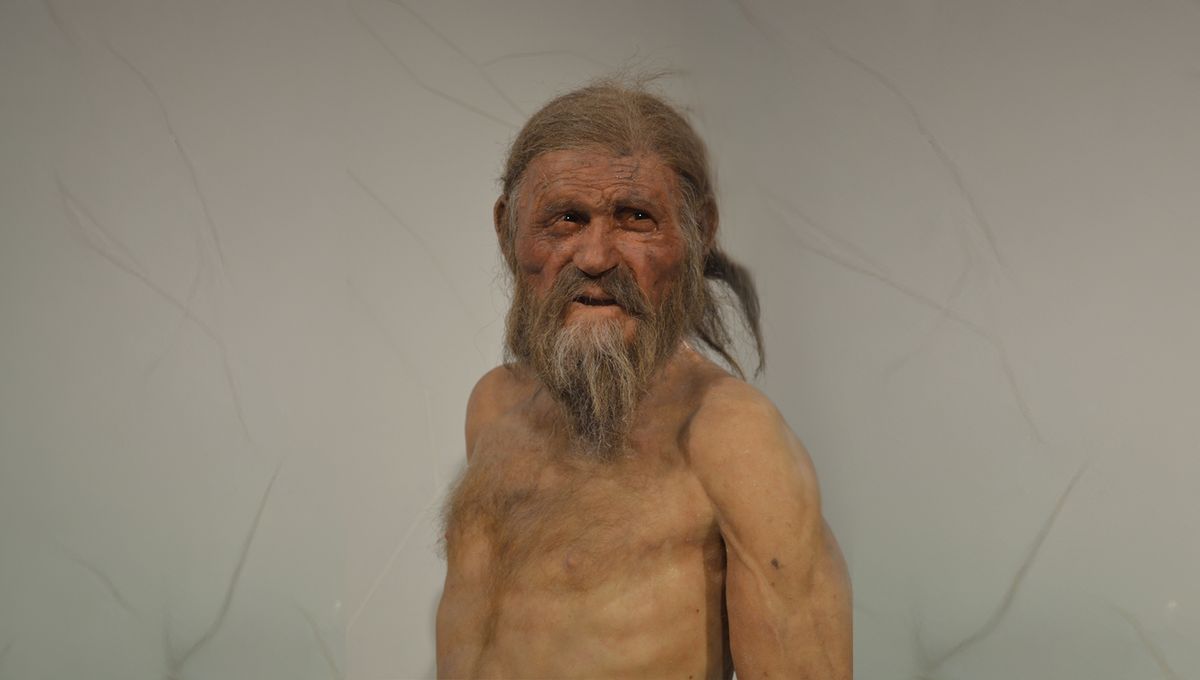
Since his discovery in 1991, Ötzi, the famous mummified Iceman found frozen in the Ötztal Alps, has been offering all sorts of insights into the Neolithic past. Now scientists have turned to his neighbors to see if their DNA can offer even more information about ancient people living in this region at the time. The results show that the people living in the Austrian Tyrol between 6400 and 1300 BCE had very different ancestry to Ötzi.
Ötzi is probably one of the most famous ancient specimens we have discovered to date. It is likely he died some time around 5,300 years ago while in his 40s. Researchers believe the Iceman was probably a farmer and herder and probably suffered from stomach aches (due to parasites) and a weak heart. However, none of these factors are responsible for his death. That was caused by an arrow that hit him.
According to previous genetic analysis, Ötzi is probably related to early farmers from Anatolia, in modern Turkey. This, as you can imagine, is quite a distance away from the place where he eventually died. At the time when he was alive, the Alps were not uninhabited; they were part of a network of trade, migration, and settlement that connected the Mediterranean with Europe.
But how genetically close was Ötzi to other people living near him? Dr Valentina Coia, a biologist specializing in molecular anthropology and human population genetics, and colleagues examined the genetic makeup and diversity of other people living in the same part of the Alps where Ötzi died. The team analyzed DNA recovered from the bones and teeth of 47 ancient people who lived in the area from the Mesolithic to the Middle Bronze Age, covering a time span of around 5,000 years.
The results indicate that people living in the Alps also shared 80 to 90 percent of their ancestry with Anatolian farmers, like Ötzi. This reveals a strong continuity with populations in southern Europe during the Neolithic period. It seems these individuals shared a similar genetic makeup that remained pretty consistent for over 2,000 years, which suggests the Alps were a genetic refuge that maintained a lineage at a time when much of the European population was changing.
But while these results were close to Ötzi, there were important differences between the other genomes and his own. Y chromosome analysis – used to trace a person’s paternal lineage – suggested that the male subjects in this study shared ancestry from prehistoric Germany and France. The Alpine maternal lineage was also found to be more diverse, indicating that women likely moved to join their new husbands, while men stayed within the same communities.
Importantly, Ötzi’s paternal and maternal lineage has not been found in ancient or modern people, so he remains a genetic outlier.
So the mysterious Iceman remains a mystery, even now. Do these results indicate that he was part of a lineage that died out or are his unusual genetics the result of how this prehistoric society was organized?
In addition to identifying their ancestry, the study also offered some insights into the people’s likely physical characteristics. Like Ötzi, the majority had dark hair and brown eyes. The team were unsure what tone of skin these people had. Interestingly, like the Iceman, they also found that these individuals were likely lactose intolerant – lacking the genes for digesting milk.
Taken together, and with a few genetic exceptions, it seems gene flow into this group was rare (one little girl who lived around 2400 BCE had Steppe-affiliated ancestry).
“This could indicate a relative isolation of the prehistoric alpine groups, similar to other more isolated areas in Italy (e.g. Sardinia), compared to those from other European regions (e.g. south-eastern or central Europe),” the team write in their paper.
The Alps at this time appears to have been a genetically stable area which was, from the archaeological evidence, permeated only by some cultural and societal exchanges.
The study is published in Nature Communications.
Source Link: Ötzi The Iceman’s DNA Reveals He Belonged To A Previously Unknown Genetic Lineage